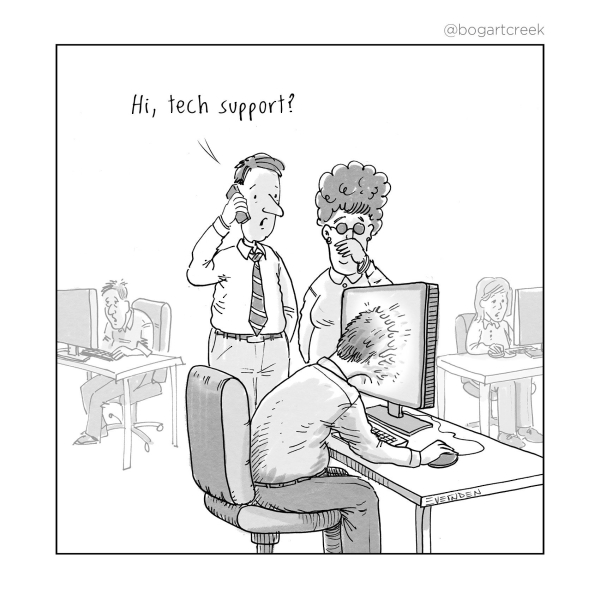We live in a world where technology changes quickly and often, while human nature remains relatively unchanged.
For most of us, human nature is the key variable.
I suspect Henry Ford focused on that when he said, "Whether you think you can or you think you can't. You're right."

Processing the possibilities of tomorrow is often difficult for humans. Part of the problem is that we're wired to think locally and linearly. It's a monumental task for us to comprehend exponential growth, let alone its implications. For example, consider what happened to seemingly smart and forward-looking companies like Kodak, Blockbuster, and RadioShack.
The world changes quickly.
Change is constant. The wheels of innovation and commerce spin ever-faster (whether you're ready for it or not).
As a practical matter, it means that you get to choose between the shorter-term pain of trying to keep up … or the longer-term pain of being left behind. Said another way, you have to choose between chaos and nothing.
It's hard to keep up – and even harder to stay ahead.
Personally, I went from being one of the youngest and most tech-savvy people in the room to a not-so-young person close to losing their early-adopter beanie. Sometimes it almost seems like my kids expect me to ask them to set my VCR so it stops flashing 12:00 AM all day.

My company may not be doing "rocket science", but it's pretty close. We utilize exponential technologies, such as high-performance computing, AI, and machine learning, to amplify intelligence and make data-driven, evidence-based decisions in real-time, all the time.
But, as we get "techier," I get less so … and my role gets less technical, over time, too.
Due to my age, experience, and tendency to be a pioneer, I've been battling technology for decades.
Don't get me wrong, technology has always been my friend, and I still love it. But my relationship with it is different now.
I recognize that there are things that change and things that stay the same. And for me, the things that "stay the same" tend to be more important.
Paradoxically, the part of me that stays the same can still change and grow – that is how you become more (and a more evolved version) of that thing.
The Bigger Picture
My father said that not worrying about all the little details helped him see the bigger picture and focus on what was possible.
You don't have to focus on the technological details to predict its progress. Anticipating what people will need is a great predictor of what will get built. That means predicting "what" is often easier than predicting 'how'.
Why is that often the case? Because technology that solves a problem is more profitable and popular than technology searching for a problem to solve.
Here's a video from 1974 of Arthur C. Clarke making some remarkably accurate predictions about the future of technology.
via Australian Broadcasting Corporation
Artificial Intelligence, quantum computing, augmented reality, neuro-interfaces, and a host of exponential technologies are going to change the face and nature of our lives (and perhaps life itself). Some of these technologies have become inevitabilities … but what they enable is virtually limitless.
Where do you see this going?
Onwards.

Leave a Reply